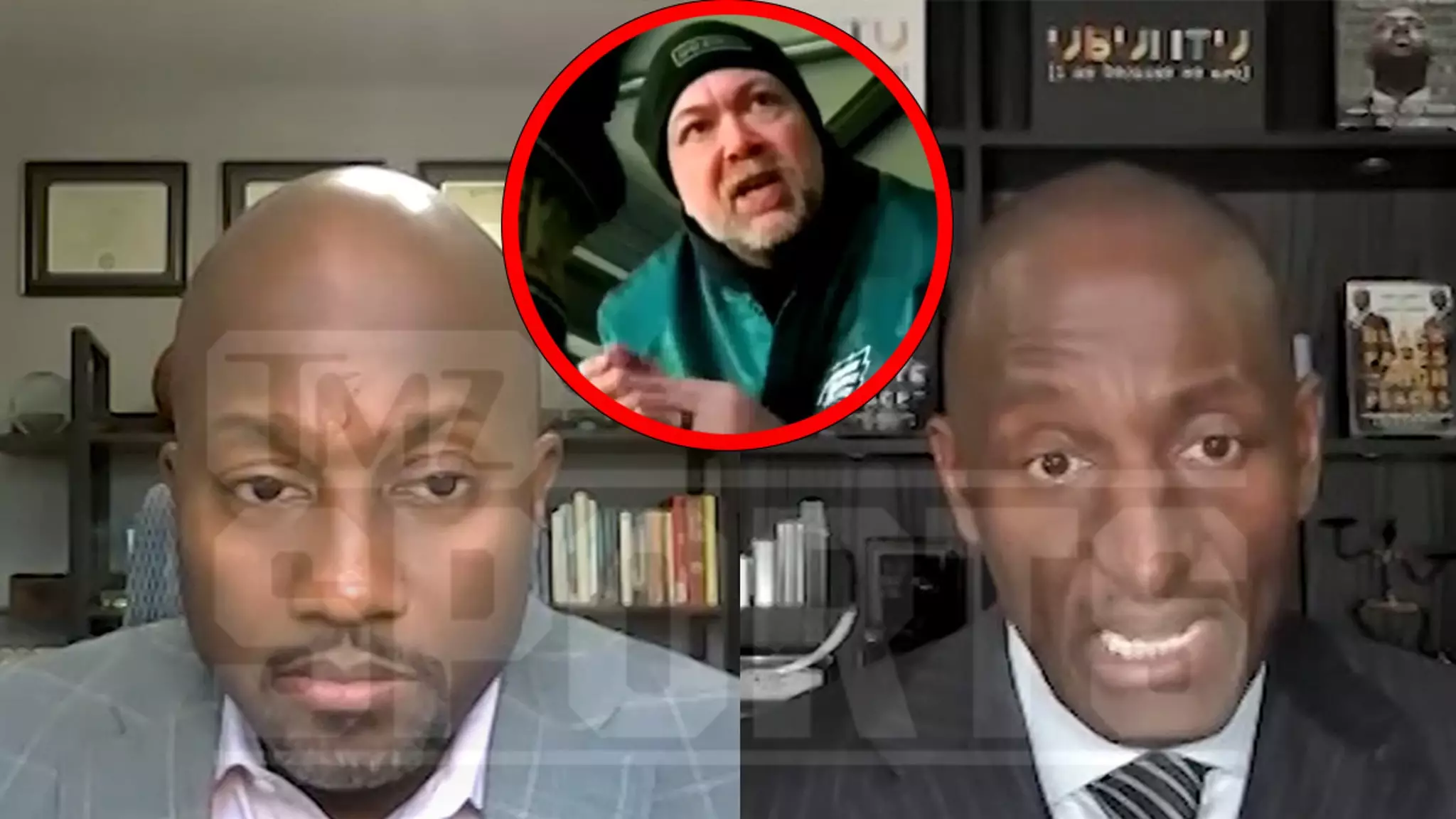In an era defined by social media scrutiny, the actions of individuals can swiftly escalate into public controversy. This was starkly illustrated when a Philadelphia Eagles fan, identified as Ryan Caldwell, hurled derogatory insults at a female supporter of the Green Bay Packers during a recent game. The incident, captured on video and widely shared online, showcased Caldwell’s unacceptable behavior as he referred to the Packers fan with derogatory language. What followed was a rapid response from Caldwell’s employer, BCT Partners, who condemned his actions and swiftly severed ties with him.
BCT Partners, co-founded by Lawrence Hibbert and Dr. Randal Pinkett, took immediate action in response to the viral backlash. Upon seeing the footage, the co-founders were quick to recognize Caldwell as an employee and realized the need for an internal investigation. Hibbert and Pinkett articulated their dismay, emphasizing the abhorrence of Caldwell’s behavior and expressing their commitment to uphold the company’s values. They stated that their decision-making process was both “deliberative and expeditious,” showcasing their dedication to addressing misconduct.
Furthermore, Hibbert described the past few days as extremely challenging for the company, reflecting on their 25-year history and the strain caused by Caldwell’s actions. The pressure grew as negative comments began to surface across various social media platforms, compelling BCT Partners to defend its reputation amid a storm of criticism.
This incident underscores the profound impact that individual actions can have on an organization’s image, particularly in a digital age where any misstep can lead to mass public outrage. Co-founders Hibbert and Pinkett highlighted a troubling trend in society—an emerging culture that leans heavily toward extreme reactions, often devoid of compassion or understanding. They noted that the discourse surrounding Caldwell’s actions has largely oscillated between acceptance and cancellation, leaving little room for redemption.
Pinkett’s remarks about the “vile” nature of some online comments signal a necessary critique of the current social climate. In their view, society must strive for a balanced approach that incorporates forgiveness and growth rather than a strict binary categorization where individuals are either wholly accepted or entirely shunned. This perspective opens a dialogue about personal responsibility while also recognizing the importance of learning from mistakes.
While Caldwell remains silent about the incident, the case presents an opportunity for reflection within both his personal journey and the broader community. It compels us to consider how we react to misconduct—whether we wish to foster an environment of growth or one marked by punitive measures. As Hibbert and Pinkett affirm, there exists a pathway not only for Caldwell to learn but also for society at large to cultivate understanding and growth.
The ultimate takeaway from this situation is the importance of accountability, both professionally and socially, and the necessity for a culture that encourages improvement rather than perpetually penalizing past actions. As organizations and individuals alike navigate the complexities of public scrutiny, the need for empathy, understanding, and constructive dialogue stands out as essential for fostering a more harmonious community.

Leave a Reply